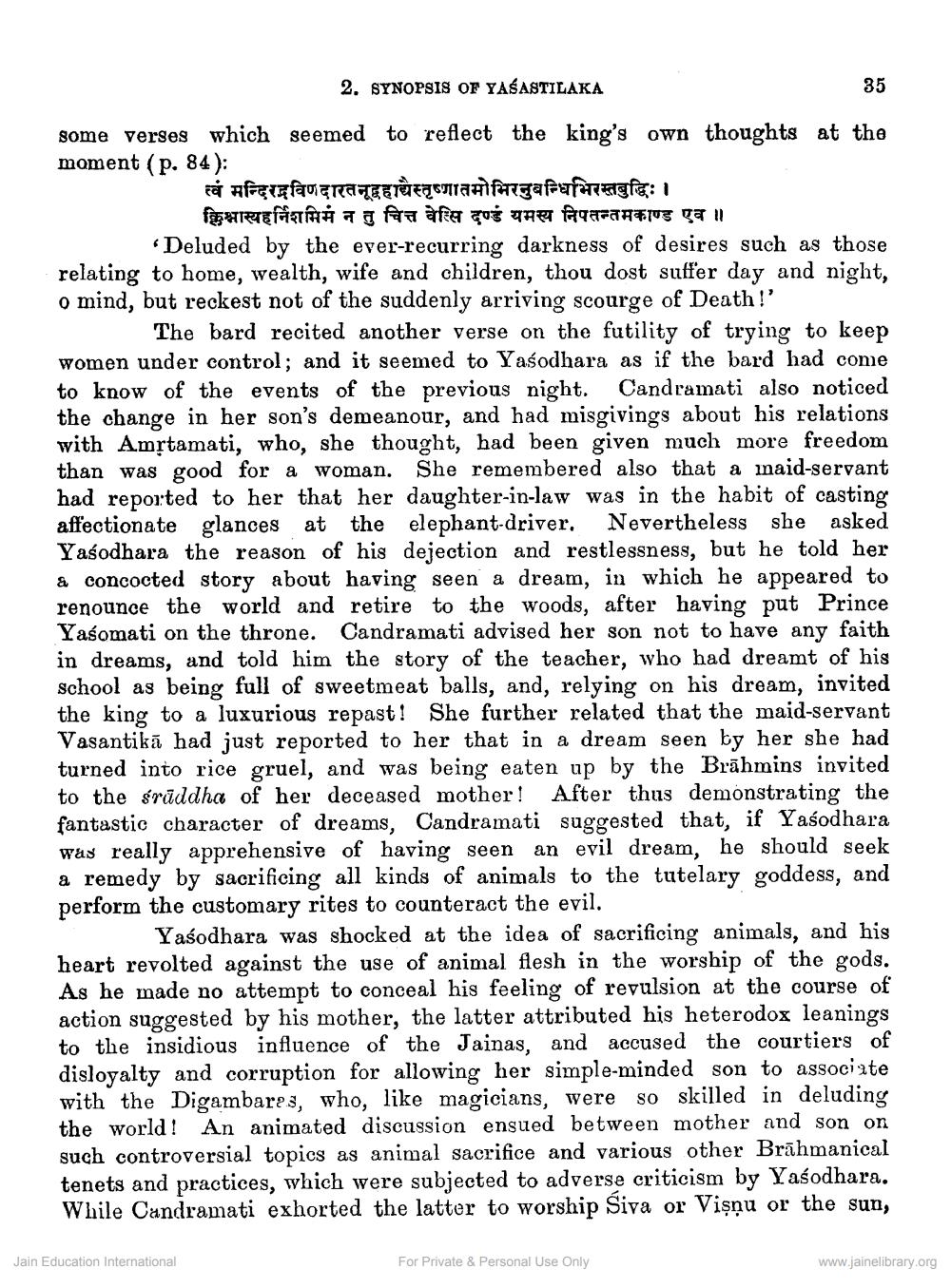________________
2. SYNOPSIS OF YASASTILAKA
some verses which seemed to reflect the king's own thoughts at the moment (p. 84):
zá afgrzfanzrazzeràzqonaṁìfargafuftragfe: 1 क्लिश्नास्यहर्निशमिमं न तु चित्त वेत्सि दण्डं यमस्य निपतन्तमकाण्ड एव ॥
'Deluded by the ever-recurring darkness of desires such as those relating to home, wealth, wife and children, thou dost suffer day and night, o mind, but reckest not of the suddenly arriving scourge of Death!'
35
The bard recited another verse on the futility of trying to keep women under control; and it seemed to Yasodhara as if the bard had come to know of the events of the previous night. Candramati also noticed the change in her son's demeanour, and had misgivings about his relations with Amṛtamati, who, she thought, had been given much more freedom than was good for a woman. She remembered also that a maid-servant had reported to her that her daughter-in-law was in the habit of casting affectionate glances at the elephant-driver. Nevertheless she asked Yasodhara the reason of his dejection and restlessness, but he told her a concocted story about having seen a dream, in which he appeared to renounce the world and retire to the woods, after having put Prince Yaśomati on the throne. Candramati advised her son not to have any faith in dreams, and told him the story of the teacher, who had dreamt of his school as being full of sweetmeat balls, and, relying on his dream, invited the king to a luxurious repast! She further related that the maid-servant Vasantika had just reported to her that in a dream seen by her she had turned into rice gruel, and was being eaten up by the Brahmins invited to the sraddha of her deceased mother! After thus demonstrating the fantastic character of dreams, Candramati suggested that, if Yasodhara was really apprehensive of having seen an evil dream, he should seek a remedy by sacrificing all kinds of animals to the tutelary goddess, and perform the customary rites to counteract the evil.
Yasodhara was shocked at the idea of sacrificing animals, and his heart revolted against the use of animal flesh in the worship of the gods. As he made no attempt to conceal his feeling of revulsion at the course of action suggested by his mother, the latter attributed his heterodox leanings to the insidious influence of the Jainas, and accused the courtiers of disloyalty and corruption for allowing her simple-minded son to associate with the Digambares, who, like magicians, were so skilled in deluding the world! An animated discussion ensued between mother and son on such controversial topics as animal sacrifice and various other Brahmanical tenets and practices, which were subjected to adverse criticism by Yasodhara. While Candramati exhorted the latter to worship Siva or Visņu or the sun,
Jain Education International
For Private & Personal Use Only
www.jainelibrary.org




